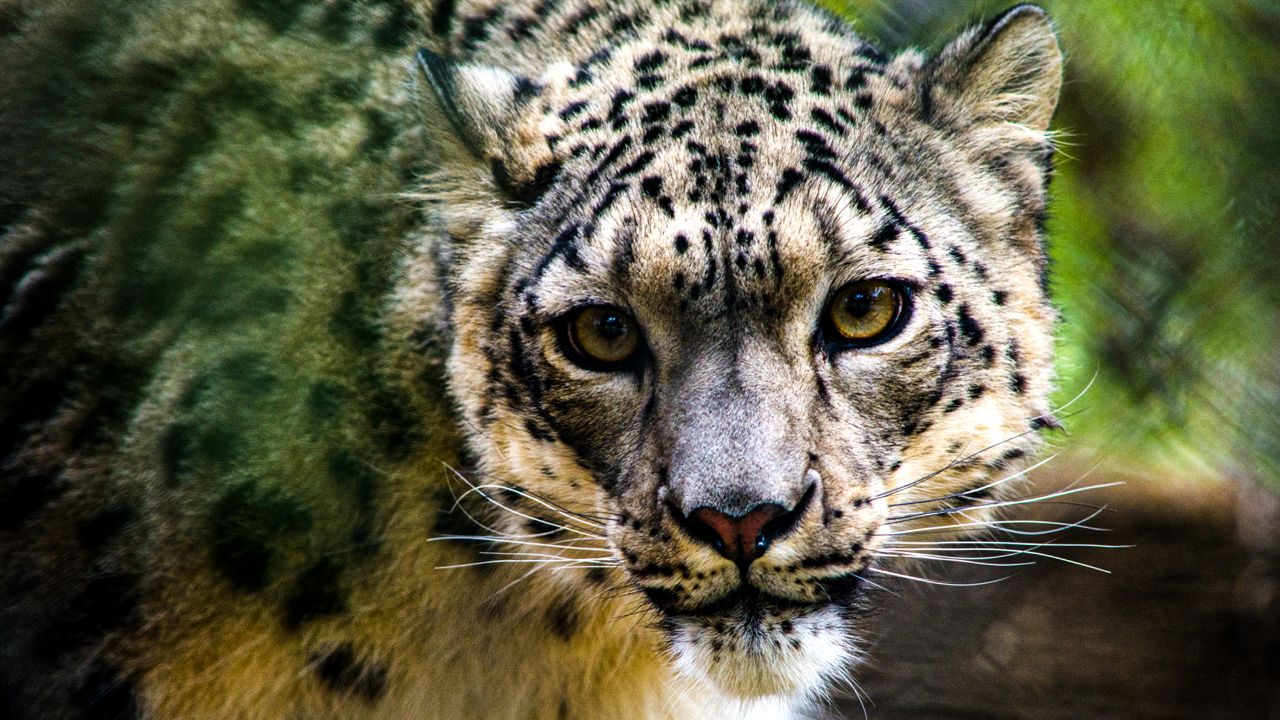LOUISVILLE, Ky. — The Louisville Zoo announced today that one of its female snow leopards tested positive for SARS-CoV-2, the virus that causes COVID-19 in humans.
What You Need To Know
- NeeCee, Louisville's female snow leopard, tested positive for SARS-Cov-2 Friday
- SARS-CoV-2 is the novel coronavirus that causes COVID-19 in humans
- The virus's risk to animals is relatively low, unlikely to spread from animal to human
- Louisville Zoo said tests are pending for other two snow leopards
It is suspected that five-year-old NeeCee contracted the infection from an asymptomatic staff member, according to representatives from the Louisville Zoo.
The Zoo is currently awaiting results from the other two male snow leopards, Kimti and Meru. All three cats are reportedly “doing well with very mild symptoms” and the Zoo is monitoring their health closely.
Based on current knowledge from the CDC, the risk of animals spreading the virus to humans is considerably low. COVID-19 is predominantly transmitted through person-to-person contact.
Representatives said the Louisville Zoo initiated all public safety precautions before reopening last spring and plans to remain open throughout the winter.
Senior Staff Veterinarian Dr. Zoli Gyimesi met with staffers who care for the snow leopards to establish stronger precautions, including enhanced personal protective equipment (PPE). Gyimesi said the cats are off-site while NeeCee recovers.
“Fortunately, based on clinical cases in large cats at other zoos in the country to this point, SARS-CoV-2 infection does not appear to be life-threatening,” Gyimesi said. “We will be closely monitoring the snow leopards for ongoing symptoms and resampling them to identify when they have cleared the infection.”
NeeCee’s diagnosis marks the first confirmed case of SARS-CoV-2 in a snow leopard.
In April, four tigers and three lions were confirmed positive at an Association of Zoos and Aquariums (AZA) zoo in New York. An additional three tigers at an AZA zoo in Tennessee were confirmed to be infected this fall.
In each positive case, the animals fully recovered and are doing well.
The USDA keeps a list of confirmed cases in animals, and in Kentucky to date, there has been one confirmed case of SARS-CoV-2 in a domestic cat.
“We would like to thank everyone for their help and support, including the University of Illinois, College of Veterinary Medicine Veterinary Diagnostic Laboratory; USDA National Veterinary Services Laboratories, Kentucky Department of Agriculture, Kentucky Department for Public Health, Louisville Metro Health and Wellness and the CDC,” said Zoo Director John Walczak. “We are thankful for our dedicated keeper and animal health staff whose care and observations led to the diagnosis of NeeCee.”
Bryce Shreve is a digital producer with Spectrum News 1 KY. He is a recent graduate of Indiana University Southeast and joined the staff in November, 2020.



